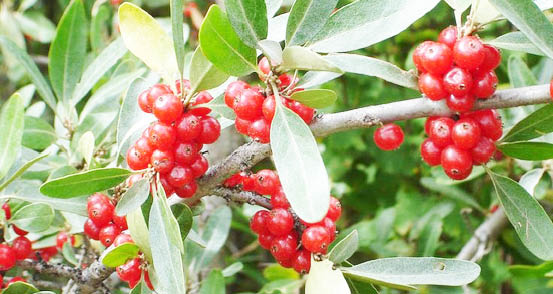The federal government has said it is putting in place modalities that will reduce foreign exchange expenditure on dyes importation by developing the natural dyes production in the country.
To this end, the government urged farmers and other interested investors to grow plants that are useful for dyes production.
The Director General of the Raw Material Research Development Council (RMRDC), Professor Hussaini D. Ibrahim, disclosed this in a document obtained by our reporter.
Among the plants identified by the council for natural dyes production is Lawsonia inermis (Henna). The leaves, the document said, have been extensively used for centuries in parts of Africa as dye for nails, skin, hands, hair and textiles. Complementarily, henna is also used in treating skin problems, headache, jaundice, amebiasis and enlargement of the spleen.
- Plateau attacks: Over 200 pastoralists killed in 2 months – MACBAN
- A trip to Maiduguri slum where residents go to school, markets on boats
The DG noted that the present high level of importation of dyes is due to the fact that the development of natural dyes in Nigeria has been affected by tedious extraction process and inadequate supply of dye plants since most of the plants are growing in the wild.
Our correspondent reports that natural dye include any dye, pigment or any substance derived from natural sources such as plants, minerals and animals. They are renewable and sustainable bio resource products with minimum environmental impact. The main sources of natural dyes are various parts of plants such as roots, stems, seeds, barks and leaves and biological sources such as fungi, snails and insects.
Professor Ibrahim noted that in Nigeria, the cost of importation of dyes is increasing annually as about 95 percent of the dyes used locally are imported, adding that the total cost of importation in 2022 has been estimated at N40bn.
He said to obviate this development, the Council initiated a project aimed at developing natural dyes production from plants in 2017 titled “Development of Natural Dyes for the Textile Industries Through the Indigo Dye Plant”.
Among the objectives of the project are to identify dye-producing plants in Nigeria, promote in and ex-situ conservation of the plant species and to develop an indigenous process technology for Dye Extraction Equipment in order to remove the drudgery associated with manual production of dyes.
He said the project was being carried out in phases. First, the inventory all the dye-producing plant species used in major dye centres in Nigeria using Kano, Gombe, Osun and Oyo as pilot states was carried out. Second, to facilitate the extraction of dyes from the candidate plants, the Council designed and fabricated a 5-10kg per day indigo dyestuff extraction equipment to reduce the drudgery associated with manual dyestuff production. The fabrication of the dye extraction process machine commenced in 2018 and was successfully completed in November 2020 at the Department of Textile Engineering, Ahmadu Bello University, Zaria.
Third, the optimisation of the extraction process of the dyestuff from various plants was carried out using the fabricated dye extraction machine with the aim to optimize and standardize dye extraction process from the different dye plants.
‘’Four major dyeing centres in Oshogbo, Iseyin, Kano and Gombe have been visited to assess the status of indigo dye production and utilization among the dyers with the view to identify and address the challenges limiting the productivity of the operators. With the advent of the dye extraction plant, the drudgery nature of manual processing is being addressed. Domestication and development of identified dye-producing plant species is also being addressed,” he said.
The DG said even though the project was ongoing, substantial progress had been made, adding that interested farmers should key into the project. He said the Council has initiated a platform for the establishment of plantations of candidate plants to promote their sustainable production through its plantation establishment of economic indigenous plant species in Nigeria programme. This project would save the country billions of naira expended on dyes importation annually.

 Join Daily Trust WhatsApp Community For Quick Access To News and Happenings Around You.
Join Daily Trust WhatsApp Community For Quick Access To News and Happenings Around You.


